Reliable BMW diesel engines
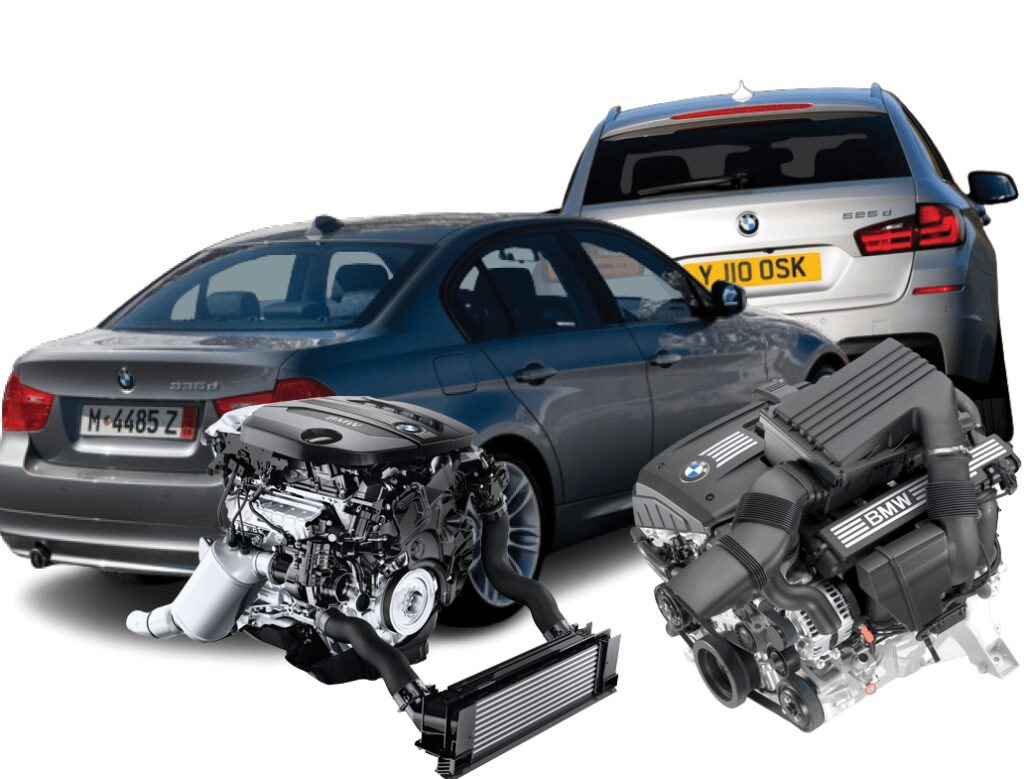
A brief disclaimer before we begin our discussion of reliable BMW diesel engines. As of the time of this writing, BMW has stopped selling diesel-powered BMW vehicles in North America.
Despite production being constrained by emission regulations, diesel variants are still available on the European market. As a result, none of the engines listed below are new.
We are looking at used car engines that have been in operation for at least ten years and possibly more.
To set the stage, let’s discuss why a BMW diesel engine is a reasonable choice.
The most significant advantage is the fantastic fuel economy and the excellent low-end torque.
Modern diesel engines, however, have a bad reputation. Emission control systems have ruined the fun and are frequently the first to fail. EGR, EGR coolers, DPF, DEF, DEF heaters, and catalytic converters are all included in the systems.
In cold regions, extreme temperatures strain the glow plugs . To keep these engines running in the cold weather, you need a strong battery. This is assuming this is your daily driver.
If you are making short travels, such as trips to the mall and back or trips to school, you might also want to avoid using these engines. This is a result of short runs causing DPF blockage. The DPF filter replacement will cost more than $5,000.
Enough of the disclaimers and now to the subject at hand: reliable BMW diesel engines you should experience.
Reliable BMW diesel engines - N47 engine
The N47 is a 2.0-liter turbocharged diesel engine used in various BMW models made between 2007 and 2017.
This engine was used in the 1 Series, 3 Series, 5 Series, and X1. It features advanced technology for a fuel-efficient, low-emission, and reliable engine.
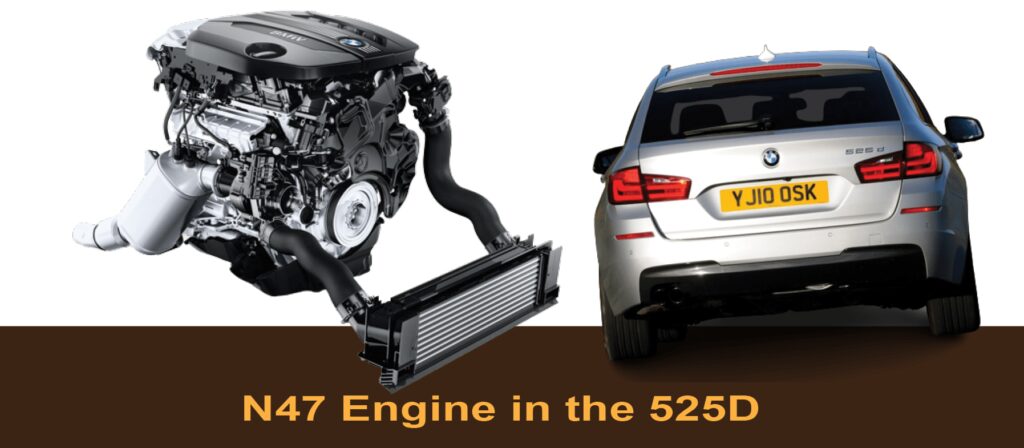
Notable features of the N47 engine
We’ll talk more about the timing chain in this engine in terms of reliability. However, the N47 engine has some unique characteristics, such as:
- Two balancer shafts for a smoother ride and to lessen vibration.
- A common rail fuel injection system delivers fuel at high pressure to each cylinder. This system provides improved fuel efficiency and reduced emissions.
- The variable geometry turbocharger used in the N47 engine alters the airflow to the engine based on speed and load, resulting in higher fuel efficiency and increased power.
- An automatic start-stop, regenerative braking, and improved aerodynamics are examples of efficient dynamics that cut emissions and increase fuel efficiency.
- Certain models of this engine can attain 50 mpg, which is amazing, to say the least.
N47 engine reliability
Overall, the N47 is reliable, but there are a few issues to mention. The first is the failure of the timing chain. This can happen for a variety of reasons, such as poor maintenance, insufficient lubrication, or faulty timing chain tensioners.
If the timing chain fails, it can cause severe engine damage and costly repairs. That means the N47 is reliable and in the right hands. However, the jury is still out on this one.
The N47 is an interference engine, and timing chain failure causes significant damage and repair costs.
The timing chain, as you may know, connects the crankshaft and camshaft, ensuring that the engine’s valves open and close at the correct times.
If the timing chain fails, the engine’s valves can collide with the pistons, causing serious damage and possibly rendering the engine inoperable.
When the timing chain fails, you’re looking at a total engine rebuild with all of the mentioned components damaged. On average, a complete engine rebuild will cost $5,000.
If that is not the case, you are looking at a high-priced engine replacement.
Timing chain failure on the N47 becomes a myth with preventive maintenance. Let’s dispel it.
Avoiding Timing chain failure in the N47 engine
- Disable auto stop-start – The timing chain fails during startup. That demonstrates how pressure builds up over time, eventually leading to the final collapse with the constant start-stop routine. Disabling auto stop-start (via the button or permanently via coding) eliminates the additional wear on the chain caused by the stop-start duty cycle.
- The oil change should not exceed 10,000 miles or 12 months, whichever comes first. If you change your oil every 7,500 to 10,000 miles, you will extend the life of your engine.
In addition to routine oil changes, it is critical to listen for any unusual noises coming from the engine, particularly a rattling or knocking sound, as this could indicate timing chain problems.
If you suspect a timing chain problem, you should have the engine inspected and, if possible, the timing chain replaced to avoid further damage.
Fuel injector failure has also been reported with the N47 engine. This could be due to contaminated fuel, low fuel pressure, or faulty fuel injectors. If the fuel injectors fail, the engine will perform poorly.
The N47’s reliability is plagued by misleading information in the interwebs. Truth be told, if you take care of this engine, it should last you a long time.
BMWs using the N47 engine
The N47 powers the following vehicles:
- BMW 116d, 118d, 120d, and 123d (2007-2013)
- BMW 316d, 318d, 320d, and 325d (2007-2011)
- BMW 520d, 525d, and 530d (2007-2013)
- BMW X1 18d, 20d, and 23d (2009-2015)
- BMW X3 18d, 20d, and 30d (2010-2017)
- BMW X5 25d, 30d, and 35d (2007-2013)
- BMW 640d (2011-2018)
- BMW 740d (2010-2015)
Since we’re talking about reliable BMW diesel engines, we recommend avoiding vehicles manufactured between 2007 and 2009. BMW had to deal with several issues when the N47 was first released. Most of the issues were resolved after 2008, and most models equipped with the N47 became more reliable.
Reliable BMW diesel engines - M57 engine
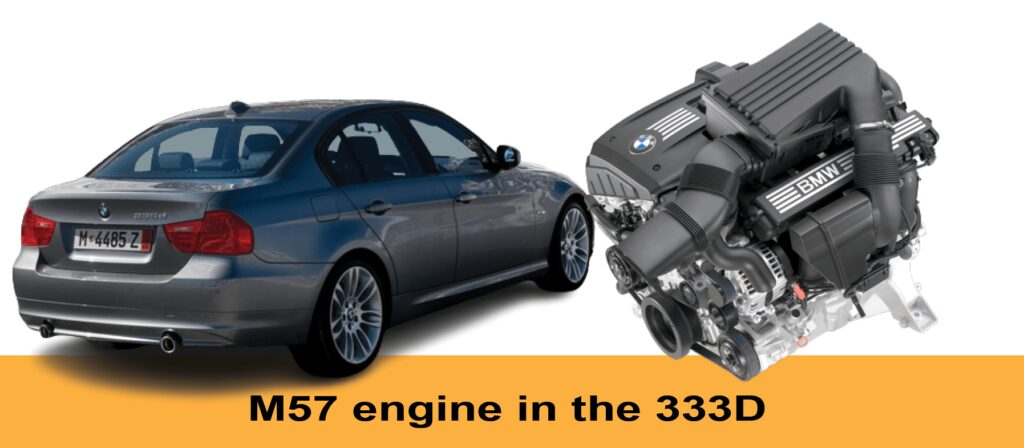
The 3.0-liter inline-six M57 engine was made between 1998 through 2018. It was in the X5, 3 Series, and 5 Series. The M57 engine has three key advantages: raw power, exceptional fuel efficiency, and durability.
This is ultimately a performance engine with 306 horsepower and 442 lb-ft of torque, depending on the model. You might also squeeze 37 mpg on the highway in models running the M57.
Let’s examine the factors that make this engine so effective.
Notable features of the M57 engine
The M57 engine has several notable features, including:
- A common rail fuel injection system
- OEM sequential – The OEM sequential turbocharger comprises two Borg turbochargers. One that operates at low RPMs and the second one that kicks in at high RPMS
- Dual overhead camshafts
- Aluminum cylinder block in the M57D30TU2TOP version.
There are 5 generations of the M57.
- M57D25 – 2500CC displacement
- M57D25TU – 2500CC displacement
- M57D30 – 2900cc displacement
- M57D30TU – 2993cc
- M57D30TU2 – 2993cc
The M57D30TU2TOP, with a 282BHP and 428LB-FT of torque, is the most popular M57 engine in the country.
In contrast to the other M57 models, which all have cast iron cylinder blocks, this one is the only one in the lineup to have an aluminum cylinder block. The switch was in pursuit of peak performance in the 335D. Engine weight is extremely important in performance engines.
M57 engine reliability
Reports of M57-equipped vehicles running for over 200,000 miles without incident are not uncommon. This is because the M57 is one of the most reliable BMW diesel engines.
And there are numerous reasons for this.
The injection system in this engine is extremely important in helping with reliability, power, and fuel efficiency. The M57’s Bosch CP3 injection system is also found in the legendary 6.7L Cummins and Duramax engines.
The M57 is an elegantly designed engine. The only complaint is with the emission systems. The flappers in the intake manifold, which are designed to improve fuel efficiency, are a particularly infamous add-on.
But only God knows why BMW engineers chose plastic for this critical component. Because they deteriorate over time and end up as debris in the cylinders, which spells disaster.
Fortunately, the flappers can be deleted, and the same is true for the EGR, DPF, and SCR systems, which comprise the emissions ecosystem. The components are the main failure points in modern engines like the M57.
Regardless of whether emission laws catch up with you, the rig is free to fly like a bird with no baggage once you delete the emission systems.
In terms of durability, the M57 engine is known to be a long-lasting engine that, with proper maintenance, can last for hundreds of thousands of miles.
This usually requires regular oil changes to help components like turbochargers last longer, as well as preventive maintenance on parts like injectors.
BMWs using the M57 engine
Some of the notable BMWs that use the M57 engine include:
- BMW 330d, 335d (2005 – 2011)
- BMW 525d, 530d, 535d (1998-2010)
- BMW 730d (1998-2008)
- BMW X3 3.0d (2003-2010)
- BMW X5 3.0d, 3.0sd, 3.0si (2000-2013)
- BMW X6 xDrive35d, xDrive40d, xDrive50d (2007-2014)
- BMW 640d, 640i (2011-2018)
- BMW 740d (1998-2015)
- BMW M550d
Wrapping up
Overall if you value performance this is the right choice for a BMW diesel engine.
These are our top picks, but the B47 engine is a hidden gem that will be added to this list soon. I hope this helps you understand the best options for a diesel BMW engine, particularly the most reliable BMW diesel engines.
More articles on BMW engines
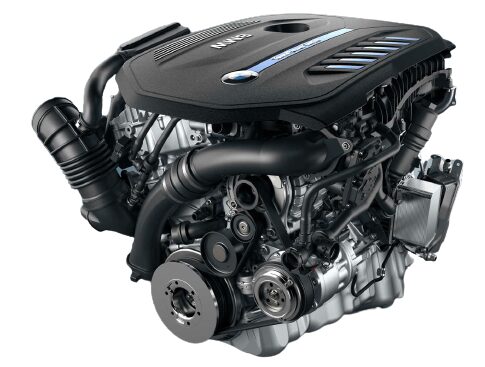
Most reliable BMW engines
In this article, we are going to delve into the most reliable BMW engines from years back – to date.
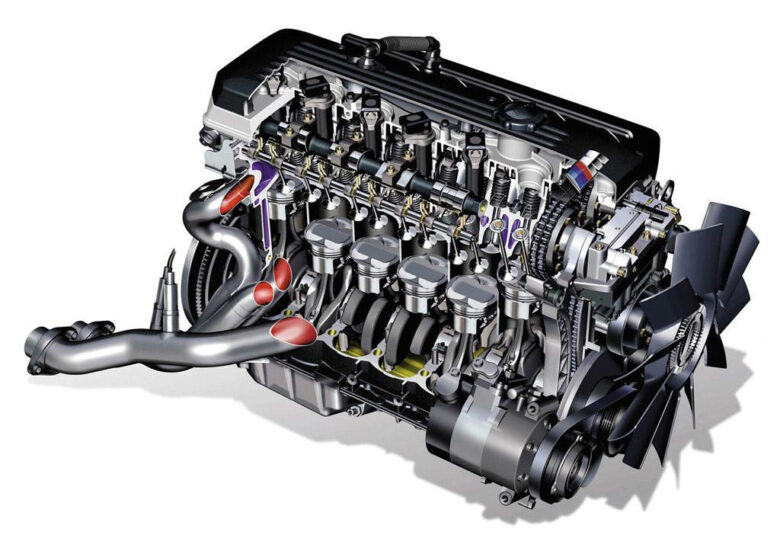
BMW engines to avoid
This article looks at the top 5 BMW Engines to avoid. Enjoy the luxurious driving experience unperturbed.
Plus more articles

